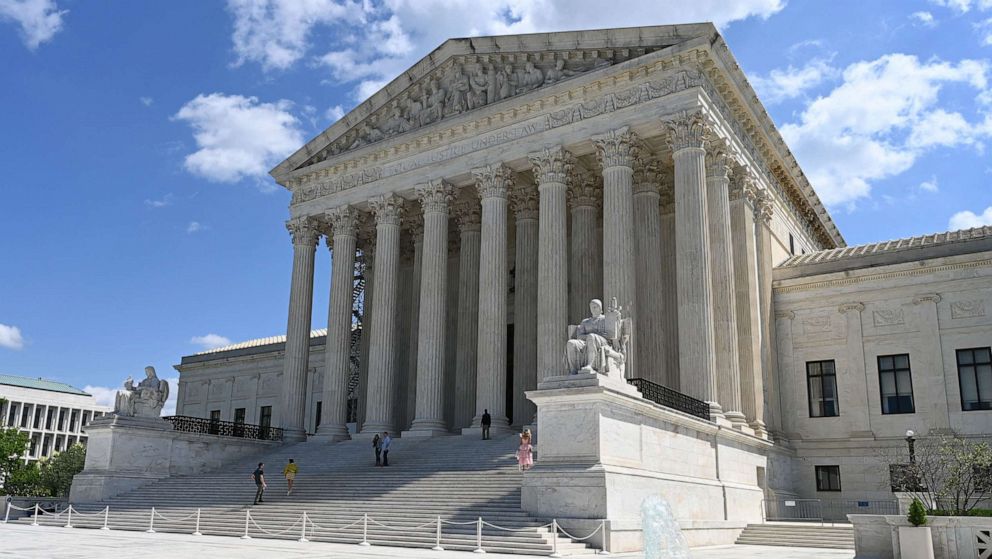Supreme Court rejects broad state legislature power over federal elections

Chief Justice Roberts wrote opinion on the independent state legislature theory.
The Supreme Court on Tuesday ruled in a case that threatened to upend state election laws nationwide.
It involved who gets to decide when, where and how Americans vote – and whether can state courts provide a check on the process.
A 6-3 decision by Chief Justice John Roberts rejects a broad interpretation of the independent state legislature theory

The US Supreme Court is seen in Washington, D.C., on April 23, 2023.
Daniel Slim/AFP via Getty Images, FILE
The court ruled against Republican lawmakers in a dispute over a North Carolina congressional map.
Roberts was joined by Justices Sonia Sotomayor, Elena Kagan, Ketanji Brown Jackson, Brett Kavanaugh and Amy Coney Barrett.
In Moore v. Harper, the justices were asked to reinstate the state legislature’s gerrymandered voting map after the North Carolina Supreme Court struck it down for violating the state constitution.
At the heart of the case was a controversial legal concept dubbed the “independent state legislature” theory, which contends the Elections Clause of the U.S. Constitution provides state legislators alone the power to govern federal elections unencumbered by traditional oversight from state constitutions, courts and governors.
Election and democracy experts warned the theory, if adopted in its most extreme application, could have a dramatic impact on how elections are run and voting rules are written in the U.S.
The Supreme Court on Tuesday rejected the theory, with Chief Justice Roberts writing the Election Clause “does not insulate state legislatures from the ordinary exercise of state judicial review.”Justices Clarence Thomas, Neil Gorsuch and Samuel Alito dissented.
This is a developing story. Please check back for updates.
Source: abc news















